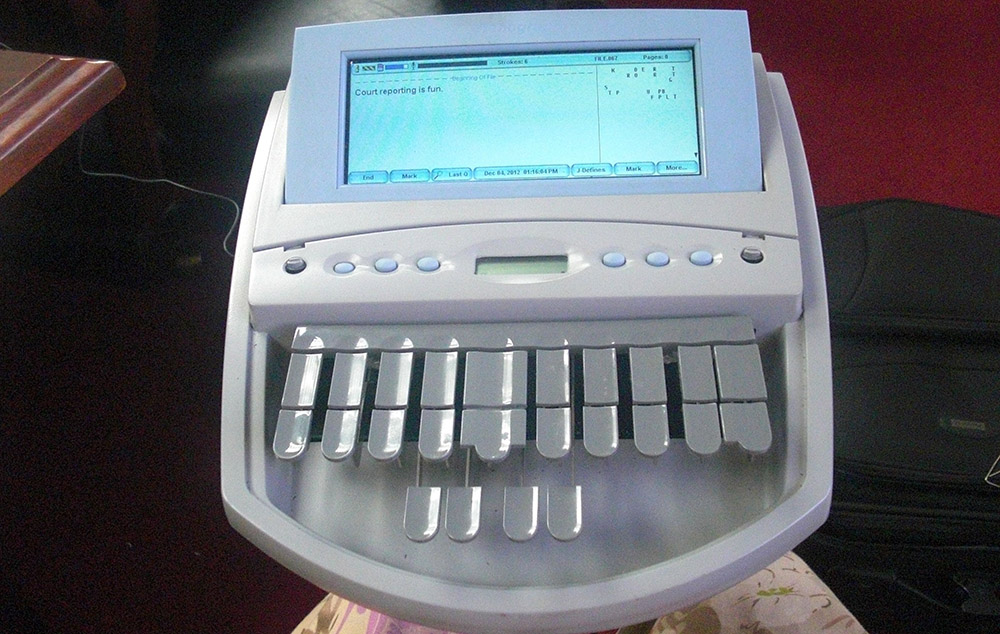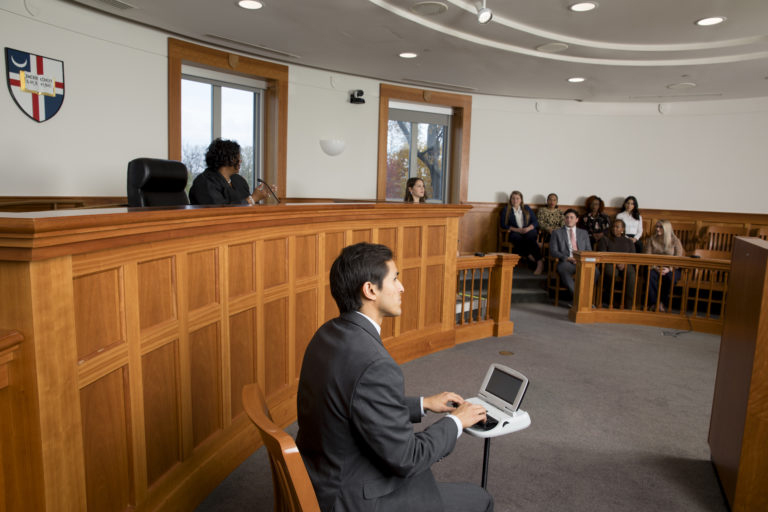The Behind-the-Scenes Work of court reporting in Courtrooms
Comprehending the Essential Function of Court Reporting in Legal Proceedings
Court coverage is frequently ignored, yet it's crucial in legal procedures. You may not understand just how court press reporters ensure every word spoken is videotaped accurately, affecting decisions made by discretionary. Their abilities and innovation play a considerable duty in preserving the honesty of lawful records. What specifically does the process entail, and just how has it developed over time? Let's explore the essential functions of court coverage and its relevance in the lawful landscape.
The History of Court Reporting
Court reporting has an abundant background that dates back to ancient civilizations, where scribes utilized various methods to catch talked words. The earliest forms of shorthand arised in Greece around 400 BC, enabling thinkers and political leaders to record speeches rapidly. As you relocate via background, you'll find that the Romans adopted similar strategies, fine-tuning them to record legal proceedings. By the 16th century, modern shorthand systems began to take shape, allowing court reporters to create exact transcripts efficiently.
Today, court press reporters play a considerable role in legal process, guaranteeing that every word talked in the court room is precisely documented. Recognizing this background highlights the importance of court reporting in preserving a fair legal system.
The Skills Required for Court Reporters
As a court press reporter, you need strong inputting skills to maintain up with the hectic dialogue of lawful proceedings. Your capability to listen diligently is just as important, making sure every word is caught properly. Understanding these skills is essential to delivering accurate and reliable records.
Skilled Keying Capacities

Strong Paying Attention Skills
Solid listening abilities are vital for court press reporters, as they should precisely capture spoken words in real time. This ability assists you set apart between speakers, understand legal jargon, and follow complex conversations. Eventually, strong listening skills make you an indispensable possession in legal procedures, making sure clearness and accuracy in the court document.
The Innovation Behind Court Reporting
In the domain name of lawful process, modern technology plays a vital function in improving the accuracy and effectiveness of court reporting. You're likely aware of the traditional stenotype equipment, yet modern stenotype reporter now use advanced software application that incorporates with these devices, allowing real-time transcription. This means you can have instantaneous accessibility to the transcript as the proceedings unfold.
Digital audio recording is an additional technical improvement that's acquiring grip. It catches every spoken word, assuring nothing is missed. Some reporters make use of voice recognition software, which can aid enhance the transcription process, though it still requires human oversight for precision.
Furthermore, cloud-based storage allows simple access and sharing of records, boosting partnership amongst lawful teams. By leveraging these modern technologies, court press reporters can offer top quality, prompt records that are essential for the legal procedure. Embracing this technology not just enhances your understanding however also ensures integrity in legal documents.
The Court Reporting Refine

As lawful procedures unravel, the court reporting process comes to be vital in recording every detail accurately. You'll locate that a court reporter plays an important function by recording talked words into written message in real-time. When you enter the courtroom, the reporter is already prepared, outfitted with specialized tools like stenographic machines and audio recording devices.
During the procedures, the reporter listens attentively, typing out whatever stated, from witness testaments to lawyers' arguments. You may discover them pausing sometimes to assure clarity or to request a repeat if something wasn't clear. After the session, the reporter evaluates the records, making necessary edits for readability.
This entire process not just ensures a complete document yet additionally prepares you for future reference during appeals or situation reviews. In the busy setting of a courtroom, the court reporting procedure is crucial for preserving an accurate account of events.
The Relevance of Accuracy in Transcripts
While a court press reporter's primary responsibility is to record spoken words, the precision of these records is important for the integrity of lawful procedures. When you're entailed in a situation, you depend on accurate paperwork to recognize the occasions and debates presented. Any type of errors in transcription can bring about misunderstandings, misconceptions, and even wrongful judgments.
Accurate records assure that every information why not try these out is caught, giving a trusted record for judges, attorneys, and courts. This level of information is essential during charms or when referencing past statements. If a transcript has inaccuracies, it can weaken the entire legal process, potentially impacting outcomes.
Furthermore, accurate transcripts promote the civil liberties of all parties included, promoting justness and openness. Whether you're a legal representative preparing for trial or a witness showing on your statement, you can trust that the court press reporter's ability in precision plays a significant duty in your case's success.
The Role of Court Reporters in Different Legal Settings
Stenotype reporter play a necessary function in numerous legal setups, from trials to depositions and lawful hearings. You'll locate that their job warranties every talked word is properly captured, which is crucial for the lawful procedure. Recognizing how their responsibilities vary throughout these atmospheres can highlight their effect on the justice system.
Court Reporters in Tests
In any kind of legal test, you'll find that court reporters play a necessary function in recording the proceedings with precision and precision. Court reporters should preserve focus and rate, often utilizing specific devices to maintain up with fast-paced discussion. Eventually, court press reporters help maintain the justice system, ensuring openness and accountability throughout tests.
Depositions and Legal Hearings
Beyond trials, court press reporters likewise play a crucial function in depositions and lawful hearings. Throughout these proceedings, they catch every talked word, making sure an exact document of testaments and discussions. You'll find that this precision is essential, as depositions frequently work as a structure for later disagreements in court. Stenotype reporter give real-time transcription services, allowing attorneys to comply with along and attend to any type of concerns instantly. Their work improves the efficiency of lawful hearings, making it much easier for all events to refer back to the authorities record. Furthermore, the records they generate can be substantial for allures and various other lawful processes - court reporting. In short, stenotype reporter are essential in preserving the honesty and quality of the lawful document in depositions and hearings.
Future Patterns in Court Coverage
As technology proceeds to develop, the future of court coverage promises to be shaped by cutting-edge devices and methods that boost accuracy and effectiveness. You'll likely see raised use of synthetic intelligence and real-time transcription services, enhancing the reporting process. These improvements can help you gain access to transcripts much faster, which can be essential for your lawful methods.
In addition, integrating video conferencing and remote reporting will end up being extra typical, permitting you to connect with court press reporters from anywhere (court reporting). This flexibility can make depositions and hearings extra accessible, conserving both time and sources
You'll additionally discover a Web Site focus on digital recordkeeping, which streamlines the storage and retrieval of records. With cloud-based services, you'll have the ability to share papers firmly and team up with your legal group in real-time.
Regularly Asked Questions
What Is the Ordinary Income of a Stenotype Reporter?
The typical wage of a stenotype reporter differs by location and experience, but you can anticipate it to range from around $50,000 to $80,000 each year. Lots of elements affect this income, including expertise and need.
Just how Do I End Up Being a Certified Stenotype Reporter?
To come to be a qualified learn the facts here now stenotype reporter, you'll need to complete a court reporting program, pass an accreditation exam, and gain functional experience. It's vital to remain upgraded on industry standards and proceeding education requirements.
What Types of Situations Do Court Reporters Cover?
Court press reporters cover various cases, consisting of criminal trials, civil lawsuits, depositions, and adjudication hearings. You'll locate them recording every little thing, making sure exact records for judges, attorneys, and events involved, catching every word spoken in lawful setups.
Are Court Reporters Required to Have a Degree?
Yes, stenotype reporter usually require a degree or accreditation in court coverage. Many programs supply specialized training, ensuring you gain the skills required for accurate transcription and legal paperwork in numerous setups.
Can Court Reporters Job From Another Location?
